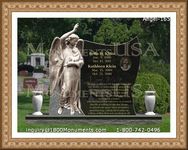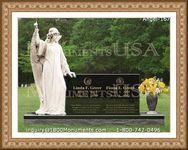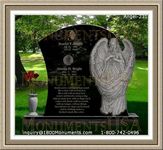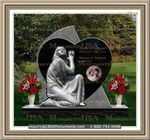|
Details To Learn When Writing A Memorial Epitaph
Setting up funeral arrangements is a job that entails a long list of details. These are usually left to a responsible member of the deceased's family or various tasks may be assigned to several individuals for less stress on one mourner. A key part of this duty is composing an epitaph worthy of the person it will represent.
This is a brief statement or phrase, sometimes a poem or prose, that is inscribed on an individual's headstone or commemorative plaque. It says something about the person it represents. There are several different forms this tribute can take, mostly dependent on the deceased's personality, life choices and who is writing it.
There are some things that practically each grave marker will have in common. Nearly all will contain the person's full name and the dates that encompassed their life. Though a good many individual's choose to stop at just that basic information, others will opt to say a little extra by including statements, sentiments or personal remarks.
Traditionally, these inscriptions are short, touching sentiments stating what the individual meant to those who loved them or wishing them a peaceful rest. Sometimes they attest to what a loving spouse, parent, child or sibling they were, or mention their time in military service. Another popular choice is to use their favorite religious scripture.
A growing number of people are making the choice to write their own goodbyes. By doing so they are able to express themselves more accurately and use a bit of creativity if desired. People with an elevated sense of humor find this to be the perfect opportunity to leave people smiling one last time.
Those who write their own might also like to use this as a platform to impart a last bit of wise advice to others. Often this involves encouraging people to be happy and live life well. One can be as creative as they wish with their final statement.
|
|



























